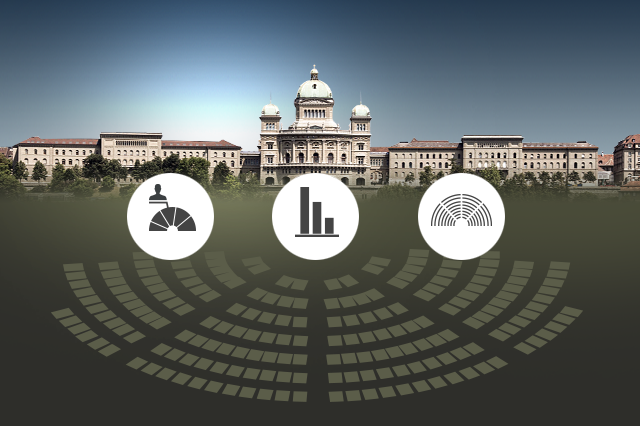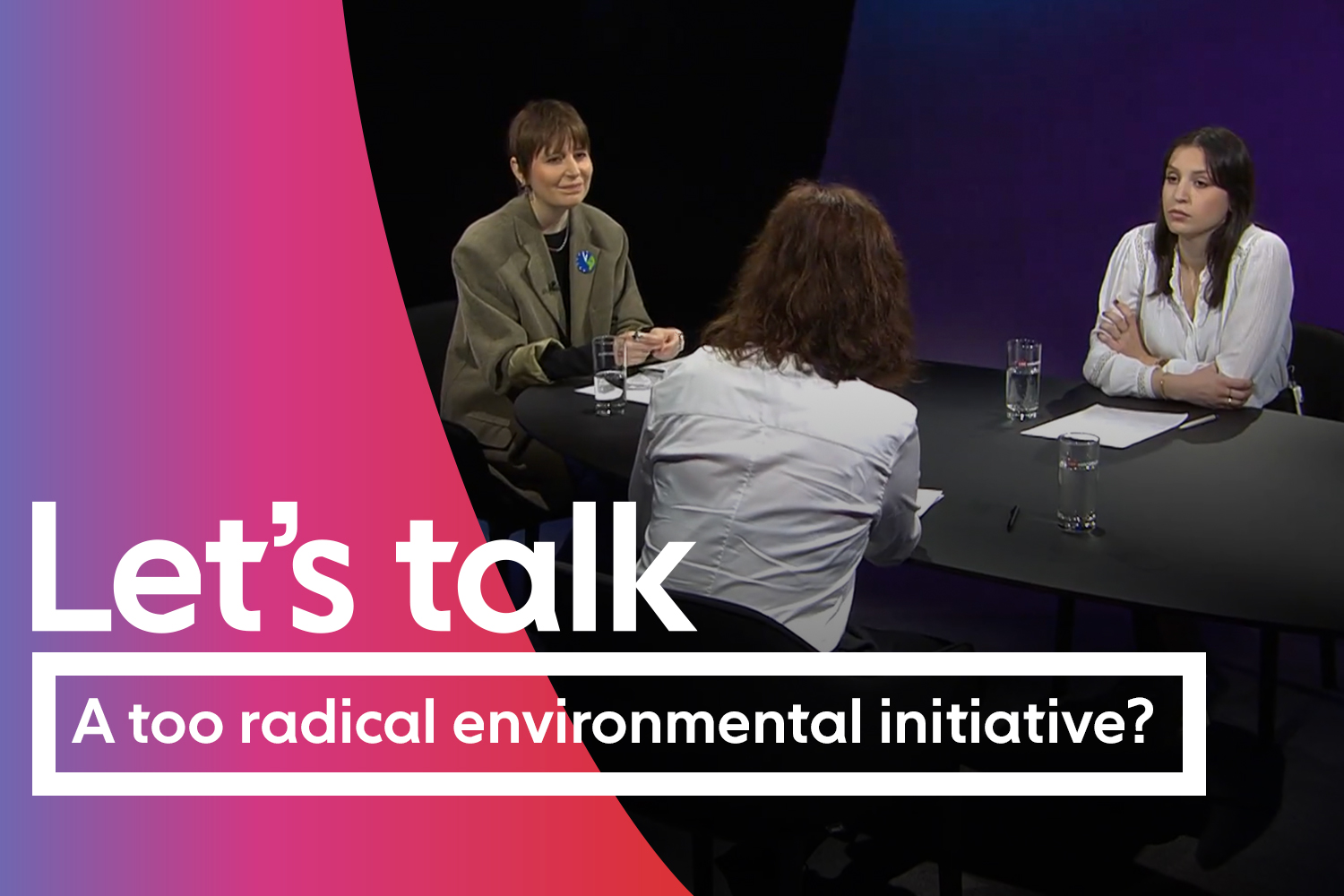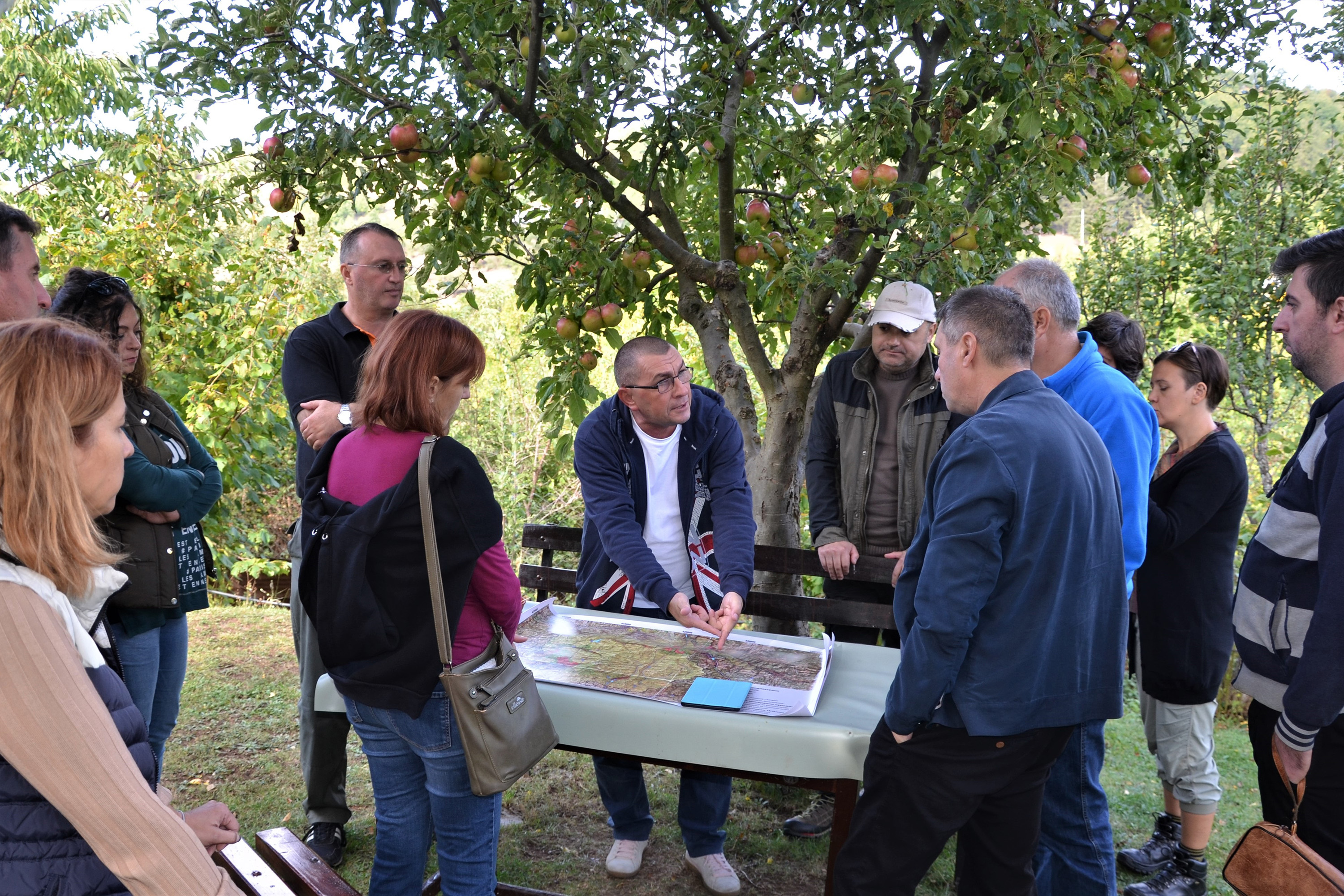Green vote failure: ‘Swiss voters don’t like bans’

The “environmental responsibility initiative”, which was largely rejected by voters on Sunday, aimed to fast-track the Swiss economy onto a sustainable course. Political analyst Cloé Jans from the gfs.bern research institute explains why it failed.
SWI swissinfo.ch: For an initiative which never stood any real chance of winning, is 30% of the vote a respectable outcome?
Cloé Jans: It’s within the range of what was expected. And it’s a respectable result in so far as initiators managed to convince their own circles: leftist and green voters probably voted quite clearly for it. But for a real success you have to be able to convince voters beyond your own group.

SWI: In some rural cantons, over 80% of voters rejected the idea. Did the initiative come across as too global, not local enough?
C.J.: Yes. If environmental initiatives want to stand a chance, they have to convince people in rural and conservative areas as well. That wasn’t the case here. That said, the fundamental aspects of the initiative were widely accepted. A lot more than 30% of people think that the use of resources must be curbed. But the initiators clearly didn’t manage to translate this sentiment into votes. When it comes to recognising the problem, environmental themes enjoy wide support – people are in agreement. But when it comes to the question of how to deal with the problem, support drops quickly.
SWI: In comparison with other initiatives, how utopian was this proposal?
C.J.: The opponents strongly emphasised the utopian aspects of it, saying it would be impossible to implement the required changes in Switzerland in such a short time [ten years]. I think that was a bigger weakness than the utopian aspect as such. The initiative was strongly focused on the lifestyle of individuals and was not intended for society as a whole. Everyone could imagine what the initiative would have meant for them. As such, there were many points of attack for opponents.

More
Swiss voters reject green overhaul of economy
SWI: Have the Young Greens at least succeeded in raising public awareness of the issue?
C.J.: Yes. There might not have been much media attention for the campaign, but the Young Greens were lucky in that their issue was the only one on the national ballot on Sunday. So there was only one topic to be talked about. At the same time, this was unfortunate, in that fewer people were actively interested in the campaign; when there are lots of issues on the ballot, more people are involved.
SWI: And yet there was a lack of substantial debate. How come the idea of global environmental responsibility didn’t manage to spark conversations or media attention?
C.J.: The atmosphere in society is different than in 2019, when parliamentary elections were dominated by climate issues, and then the post-2019 parliamentary legislature. Back then there was a strong focus on green issues and on the election success of the Green Party. Now we’re living in a time of geopolitical uncertainty. Economic uncertainties are also a big theme. This made things particularly difficult for this initiative, since it precisely raised fears about the economic situation.
SWI: So the initiative came at the wrong time?
C.J.: It certainly didn’t come at the time when it could have had the biggest impact, which would have been right after 2019. At the same time, the initiative is also a child of that time, when green issues suddenly became pressing and gained attention. Without those elections in 2019 and the youth climate protests, we would be in a completely different place in the debate today.

More
Swiss elections: Landslide Green gains tip parliament to the left
SWI: Cantonal vote results on Sunday also look conservative: no to voting rights for 16-year-olds in Lucerne, no to a minimum wage in Solothurn, no to tax breaks for electric cars in Schaffhausen. Even if each result is not surprising in itself, the sum total is remarkable. Is Switzerland experiencing a backlash six years after the green wave?
C.J.: Yes, polls looking at citizen concerns also show this. At the moment, issues which favour conservative forces are trending: migration, population growth, the economy. To some extent, the left, especially the trade unions, can also benefit from this. The situation for environmental proposals, on the other hand, is difficult. However, we shouldn’t forget that the environmentalists also marked a victory in the vote last year on motorway expansion.

More
Swiss reject plans for bigger motorways and extra rights for landlords
SWI: But with the pesticide initiative, the environmental responsibility initiative, the drinking water initiative and the biodiversity initiative, ecological proposals have been serially rejected by over 60% of voters. What is the green camp doing wrong?
C.J.: As I said, it has to convince people in rural, conservative areas. Or at least – as with the vote on the motorways – strongly mobilise other groups to get out and vote. In the case of the motorway expansion, it was women who made a very strong contribution to the no result. Also, the Swiss are relatively open to environmental issues and recognise their urgency, but they don’t like bans.
SWI: The environmental responsibility initiative was criticised for being vague as to how it would be implemented. In the case of the 13th pension payment vote, however, it was precisely this vagueness that led to victory. Is there a recipe for formulating an initiative?
C.J.: You could say that the more concrete the specifications are, the more vulnerable an initiative is. If it remains vague, then it is still possible to talk about the issue. However, opponents can systematically pick apart concrete specifications.
SWI: Staying vague and not committing to details: the Young Greens at least did that right.
C.J.: Yes, but they were doing this as a defensive strategy from the outset. With people’s initiatives, the focus is always on presenting the problem at the start; because there you can find a relatively broad consensus and also collect the 100,000 signatures needed for a vote. In the campaign, however, the focus is no longer on the problem, but on the proposed solution. And the more concretely this is formulated, the easier it is to attack.
SWI: As far as the environment is concerned, the problem is not going away. Can the pendulum swing back again? From the green backlash to another green wave?
C.J.: Yes, politics is very often cyclical. At the moment, we’re living in a time of great upheaval and change. When so many other urgent things are happening at the same time, this pushes the common view of the problem into the background. But floods and droughts will keep the urgency of these issues high.
Edited by Benjamin von Wyl. Translated from German by DeepL/dos/ts

In compliance with the JTI standards
More: SWI swissinfo.ch certified by the Journalism Trust Initiative














You can find an overview of ongoing debates with our journalists here . Please join us!
If you want to start a conversation about a topic raised in this article or want to report factual errors, email us at english@swissinfo.ch.